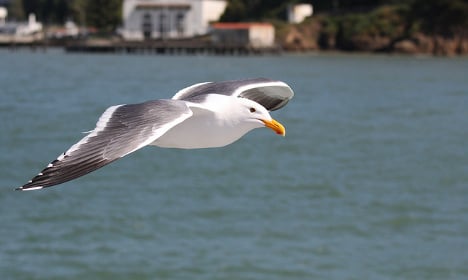So the Grand Hyatt Cannes Hotel Martinez has deployed a team of trained hawks to chase away opportunistic gulls who may be hovering a little too close to its outdoor dining areas.
In the middle of the world's premier film festival in the French Riviera town, a five-year-old Harris's Hawk named Tsunga is ready to swoop in and save the day.
“If a gull that weighs a kilo lands on a table, knocking over glasses – keeping in mind that celebrities walking the red carpet are wearing unique dresses – if a drink spills on a dress, it's all over,” said professional hawker Christophe Puzin.
“We basically send our birds of prey to attack seagulls. During the day, when we serve breakfast, lunch, and dinner, we're watching to make sure no seagulls land on the tables.”
Tsunga is one of five hawks on the hotel's feathered security team. To the hotel the hawks provide an environmentally friendly solution to the gulls who are so used to humans that they don't hesitate to come and help themselves.
“We have seen a gull try to take a guest's steak before. And others come to get peanuts or other things,” said Alessandro Cresta, general manager of the hotel. “Of course, it is also partly the guests' fault. They have started taming them by feeding them regularly. After a while, birds get used to the presence of humans and lose their fear.”
The birds are trained to fly above the hotel at an altitude of about 150 metres (490 feet). “The gulls can see their natural predator and understand that there is a new presence here… so that makes them stay away.”
Puzin said the hawks pose no threat to the hotel's guests. “A falcon would never attack or be aggressive towards a person because for them we're friends. We feed them, we take care of them, and we are prey that would be a bit too big for them.”
The Cannes film festival runs for 12 days and has brought some of Hollywood's biggest stars to town – like Julia Roberts, George Clooney and Kristen Stewart – as well as thousands of visitors who come to soak up the glamour.



 Please whitelist us to continue reading.
Please whitelist us to continue reading.
Member comments